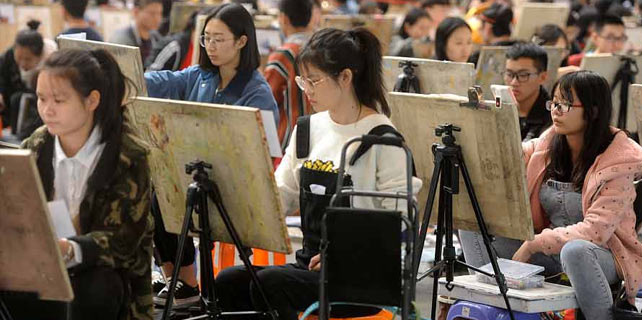Harvard's Fairbank Center focuses on China
When Harvard University opened its Center for East Asian research in the 1950s, it provided research and scholarship on all of Asia. As the US-China relationship has deepened, the center's geographic focus now is more on China.
"Since the founding, Harvard has developed research initiatives for Japan, Korea and South Asia. While our geographic scope has shrunk, our basic mission to advance scholarship on China remains unchanged," said Michael Szonyi, the current director of what is now the Fairbank Center for Chinese Studies, in reflecting on the 60th anniversary of its founding.
Born in Huron, South Dakota, John King Fairbank became fascinated with China in the 1920s and devoted his Phd research to the country. He played a prominent role in making Harvard a leading research center on East Asia and served as the director of the university's Center for East Asian Research from 1955 to 1973. The center was later renamed the Fairbank Center for Chinese Studies after his retirement.
"We have a much more complex and richer relationship with China," said Szonyi. "We work with Chinese colleagues and partner with Chinese institutions."
Being associated with a university like Harvard has its advantages, Szonyi noted, particularly in light of the current political climate in the US. "We can offer critical and dispassionate analysis of China without being affected by the political climate in Washington," he said.
Szonyi said Fairbank is recruiting more Chinese Americans and faculty from China, and while the center has never had a Chinese American serve as director, "I hope that will change going forward," he said.
Since the center's founding, there has been an explosion of university research institutes, think tanks and business consultants in the US focused on China and the Sino-American relationship. "I would argue that is a good thing," said Szonyi.
Szonyi has also completed a book, The Art of Being Governed: Everyday Politics in Late Imperial China, about the life of soldiers in the Ming dynasty in the 14th through 17th centuries.
Szonyi said that Fairbank and Chinese President Xi Jinping believe that understanding China's past is very helpful in understanding its people.
His book is a profile of how the lives of soldiers were shaped by state power in the 14th century and how people at the time worked the system to their own advantage.
"The Chinese have told me that they see some similarities in the ways in which ordinary Chinese people 500 years ago dealt with government and the way they deal with government today," Szonyi said.
paulwelitzkin@chinadailyusa.com









